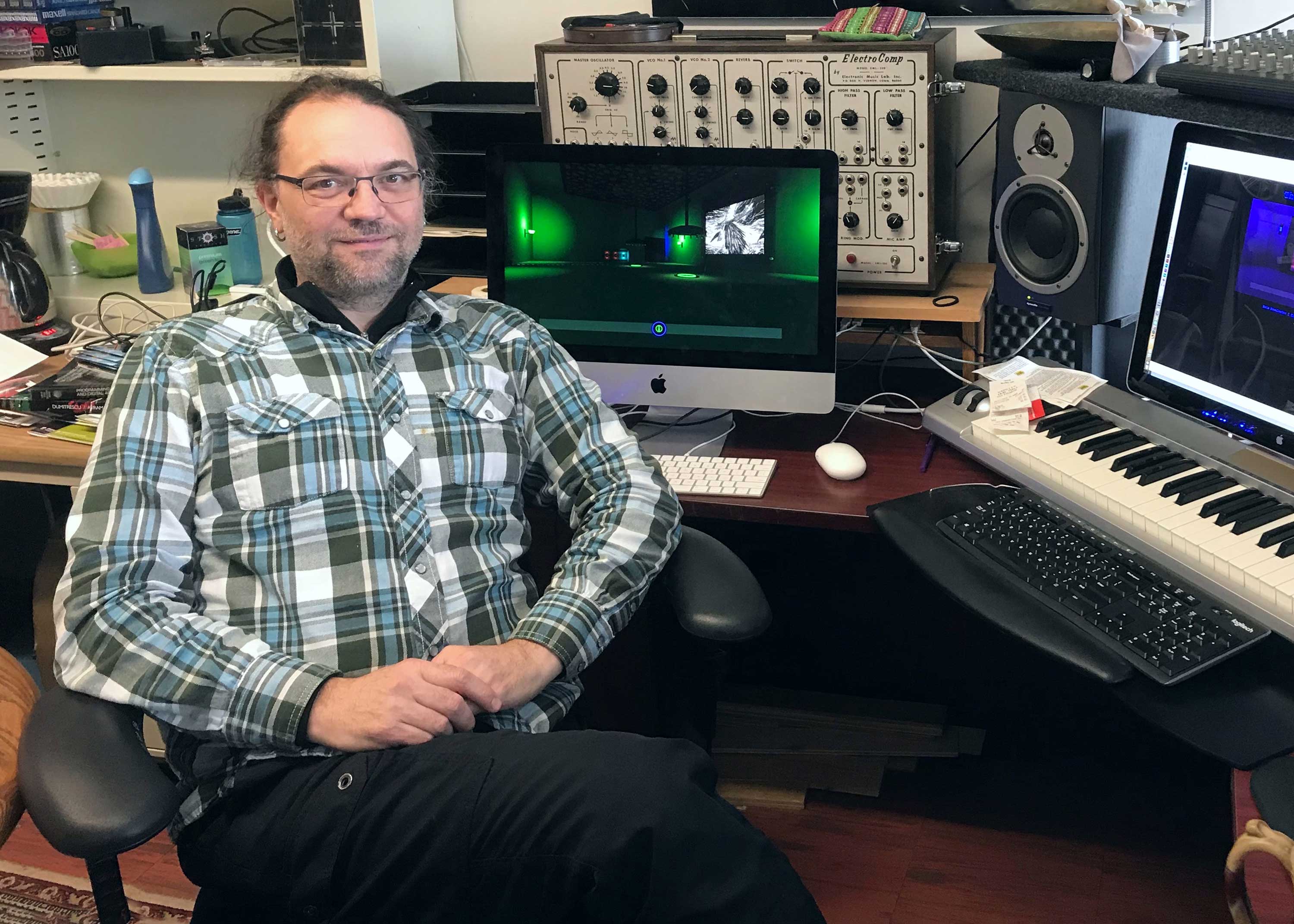A new, state-of-the-art sound laboratory at the University of Alberta will help advance innovative research in audio design and sonic experience—everything from music therapy for hospital patients to soundscapes in gaming to understanding how sound creates community.
Called Sound3 Lab—to denote the three areas of Sound Art, Sound Health and Sound Communities—the lab will be located in the basement of the Arts Building and is supported by a $211,000 grant from the Canada Foundation for Innovation.

“I'm working a lot with audio gaming concepts right now,” said Scott Smallwood, director of the U of A’s Sound Studies Institute (SSI) in the Faculty of Arts, who is spearheading the project along with Michael Frishkopf and Julia Byl of the Canadian Centre for Ethnomusicology.
“It’s really hard to find places for quiet recording, but also just plain old listening,” said Smallwood, “such as a project where you're trying to elicit some kind of response from people based on sounds you're playing.”
The new space will provide exceptional sound insulation and will house the necessary audio and computer gear to explore a variety of sonic questions.
“Artificial intelligence, machine learning and other forms of computing have given us new ways to engage with sound, and even to create new kinds of sonic experiences,” said Smallwood.
“How can sound in a virtual reality environment enhance one's understanding of climate change? Can AI-informed sound and music in these environments be used for healing? How can 3-D soundscapes enhance our understanding of community?”
One of Smallwood’s planned projects will involve creating new audio puzzle mechanics in video games, which also create opportunities for new kinds of compositional forms.
Easing stress, preserving history
Frishkopf will use the new space for research in music and sound therapies. His team is designing a system that combines soundscapes, machine learning and biosignals to reduce stress in critically ill patients.
“Ultimately that research is destined for the ICU and hospital, but first you need a place to test it on healthy subjects, and we’ve never had a suitable space,” said Frishkopf.
“The Sound3 Lab provides the uniform listening conditions, the high-powered computers and the machine learning we need for our research in a centralized lab.”
Byl’s research involves engaging listeners in the interpretation of audio archives, in this case recordings from a South Asian community.
“This will be a place for people to listen to the archives and have their perspectives, ideas and perceptions recorded in the studio as a supplement to the archives,” Byl said.
“By providing access to this technology, people can see and engage with the content, allowing them to take ownership of it in a different way.”
Other uses for the lab include producing podcasts and voiceovers for documentary films, and recording interviews and performances with visiting music artists. The Sound Studies Institute will also continue ongoing work digitizing community media archives.
One community partnership between the institute and the Aboriginal MultiMedia Society—called Digitizing the Ancestors—has already begun digitizing thousands of interviews, photographs, stories, songs, ceremonies and radio and television programming dating back to the mid-1960s.
Sonic possibilities
Roughly two-thirds of the total cost for the Sound3 Lab—between $500,000 and $600,000—will be devoted to construction of two fully insulated recording/experimental spaces, following recommendations provided by a provincial acoustic consultant. The remaining cost will cover studio equipment and computers.
“We're going with a really nice digital console system with automation, along with a high-powered PC and plenty of high-quality microphones,” said Smallwood.
While used mainly for faculty research, at least initially, the lab may also be open to student researchers enrolled in the arts faculty’s Certificate in Computer Game Development, as well as to those recording, programming and digitizing archives for faculty research projects, said Smallwood.
The research team is hoping construction will begin sometime this year and launch in 2022. While initially driven by the research of Smallwood, Frishkopf and Byl, in the long run there is really no end to the kinds of sonic exploration the lab might accommodate.
“I think the space will have a kind of autonomy for the first few years of its functioning,,” said Smallwood. “But ultimately, SSI could shepherd the space and make it available for a lot of different projects (across campus).
Great ideas change the world, but ideas need a push forward. At the University of Alberta, we know that push has never been more important as we do our part to rebuild Alberta and keep doors of opportunity open to all. We're making research discoveries. We’re cultivating entrepreneurs. And we’re giving our students the knowledge and skills they need to turn today's ideas into tomorrow's innovations. Read more stories about U of A innovators.